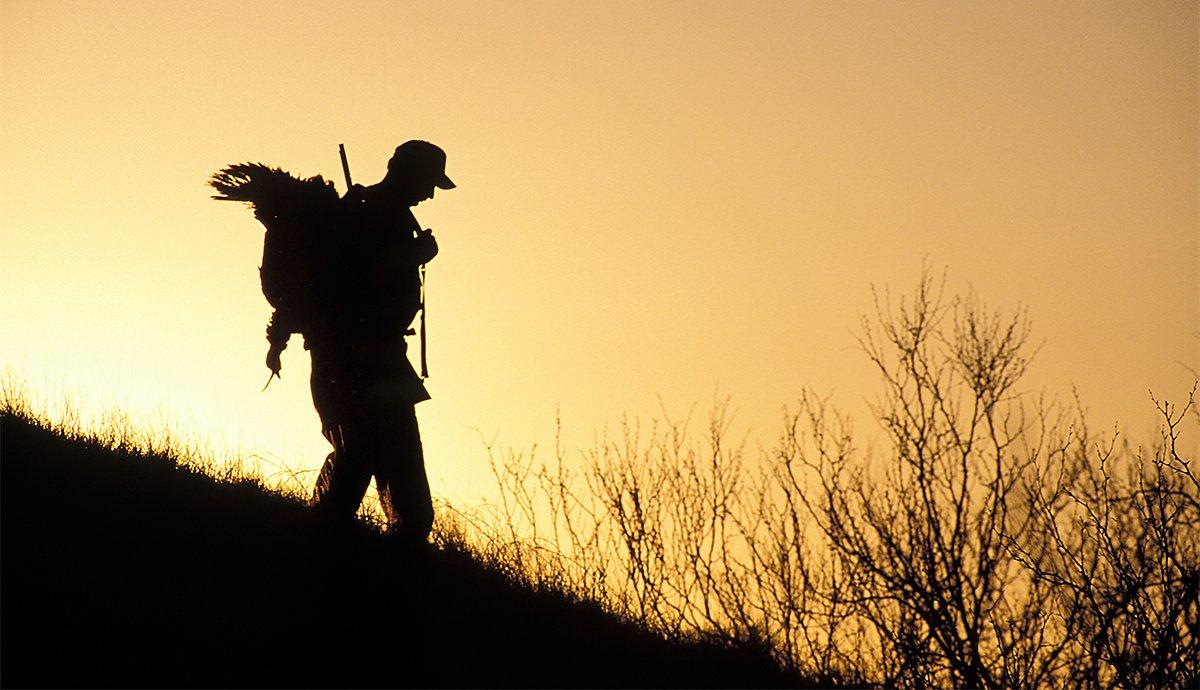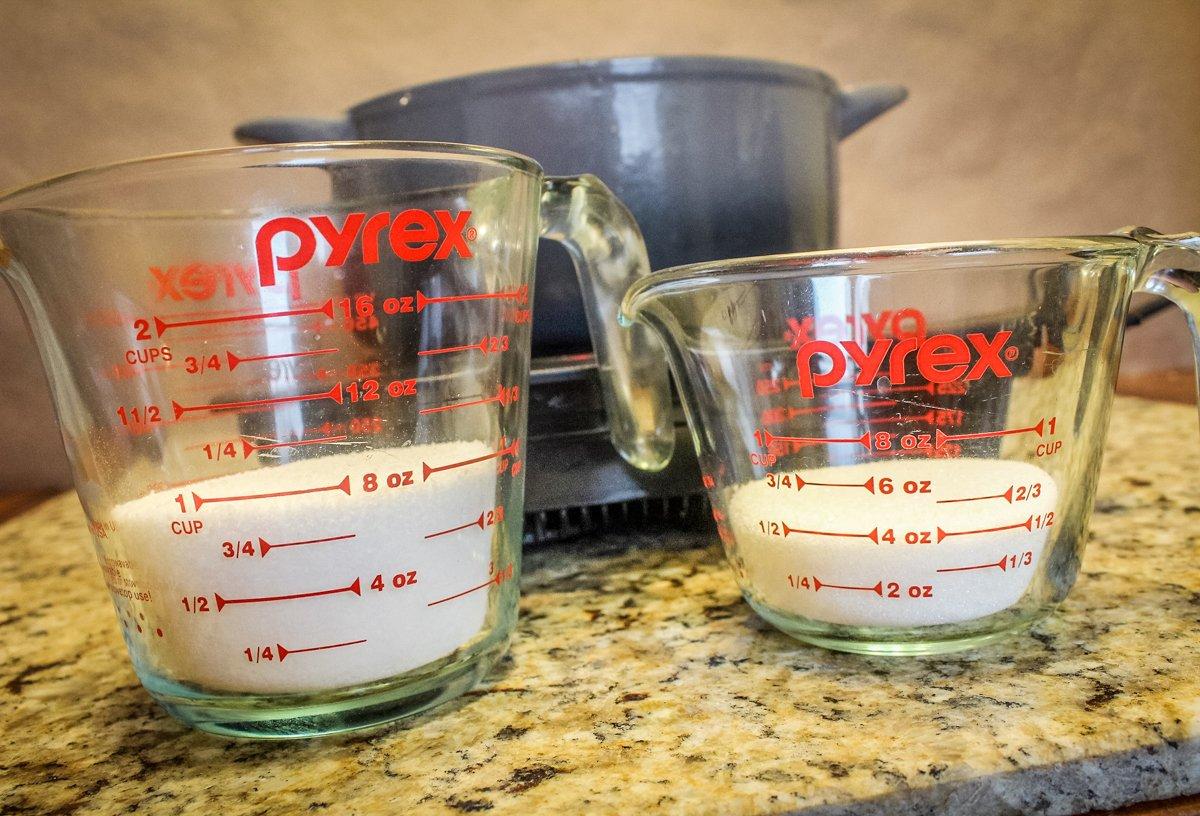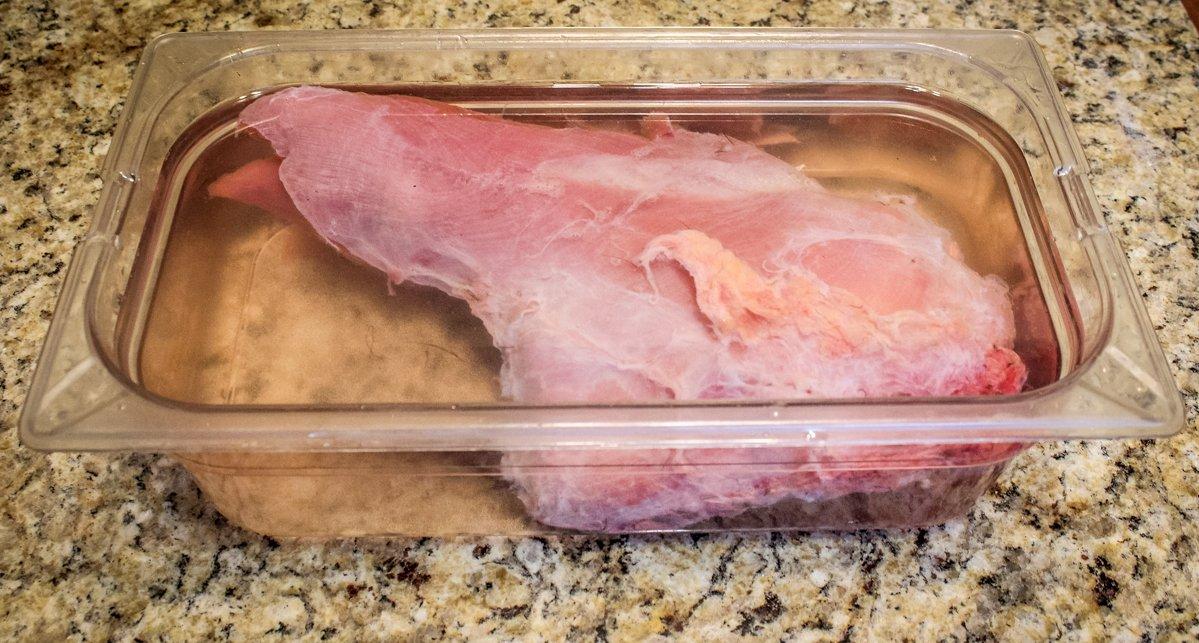Once your gobbler is in the bag, will brining improve your wild turkey dishes?
Very often in discussions on cooking wild turkey, the subject turns to brining. Does it work? Is it important? For me, the answer is a resounding yes to both, particularly when it comes to cooking breast meat with dry heat like grilling, roasting, or frying. About the only time I don't brine wild turkey meat is when I plan to use a high-moisture cooking method like soups, stews, or braising.
What is a brine? In the most basic form, water and salt. Recipes abound with additional flavoring ingredients, everything from onions, to beer, to apple cider or fresh herbs. The theory is that added flavors in the brine will transfer to the meat. I've tried a lot of them. Aside from a slight flavor on the surface, I can't tell that the extra flavor ingredients do much for the meat. What I do add is a bit of sugar. Sugar helps to balance the salt flavor and increases surface browning while cooking, an important step since wet brining can make browning more difficult.
Why brine? Unlike their barnyard brethren, who reach weights of 35 pounds or more in a matter of months, wild turkey gobblers are lucky to see 20 pounds by the time they are three years old. Couple the slow growth rate and increased age with the fact that wild turkeys spend their lives running, flying, and continuously on the move in search of food, and it is easy to see that wild turkeys are a mass of lean muscle.
Think of all that muscle as tightly wound bundles of hoses. Without brining, those bundles remain bound together through the cooking process. Brining loosens those fibers, allowing moisture to enter the muscle.
Why is extra moisture in your turkey important? As the internal temperature of the turkey climbs above 150 degrees, some of that moisture is forced out. Climb much above 160, and much of the moisture in the turkey is now gone, leaving the turkey tough and dry. Brining gives the bird a bit of a buffer, ensuring the finished dish is still moist and tender. For this reason, when grilling, smoking or roasting wild turkey, I pull the dish from the heat once the internal temperature reaches 155 to 158. Carry-over heat will take the temperature to 160, perfectly safe for wild turkey.
My standard brine recipe for wild turkey is a simple one.
1 gallon of water
1 cup of Kosher salt
½ cup of sugar, white or brown, your choice
Since it is difficult to get a full cup of salt and a half cup of sugar to dissolve in cold water, heat the water to just short of boiling, then turn off the heat, add the sugar and salt, and stir well to dissolve. Cool the brine completely before adding the turkey, you don't want to start the cooking process before the turkey brines.
If you don't have time to cool your brine before adding the turkey, simply reduce the water in your pot to 3 quarts, dissolve the salt and sugar as before, then add 1 to 1 ½ quarts of ice to the mixture to cool it rapidly.
How long should you brine for maximum benefit? For entire turkeys, I like to go up to 24 hours. For full sides of a gobbler breast, 6-8 hours, and for sliced breast cutlets or fingers, 3-4 hours is sufficient.
Will making the brine supersaturated with salt shorten the brine time or increase water absorption? Nope. In fact, research at The Food Lab at Serious Eats tested several saline levels in brines to see which worked best. A super salty 35% salinity brine not only made the cooked domestic turkey incredibly salty tasting, it actually dried the finished dish more than an unbrined turkey.
The Food Lab settled on a salinity of 6-7% as optimum for moisture retention and flavor. The recipe of 1 cup of Kosher salt in 1 gallon of water gives a salinity level right around 7%, perfect for brining your prized wild turkey.









